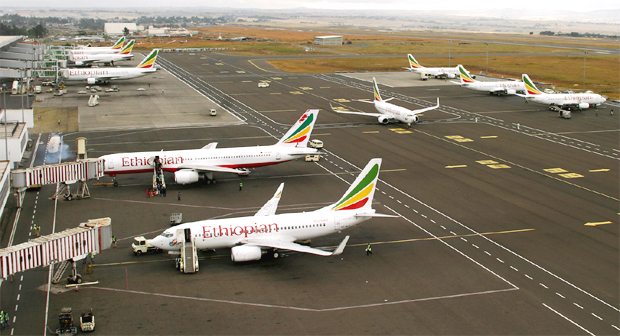×
The Standard e-Paper
Smart Minds Choose Us

NAIROBI- Ethiopia has overtaken Dubai as a conduit for long-haul passengers to Africa, highlighting the success of the state airline’s expansion drive and the reforms of its new prime minister.
Travel consultancy ForwardKeys said on Wednesday Addis Ababa airport had increased the number of international transfer passengers to sub-Saharan Africa for five years in a row, and in 2018 had surpassed Dubai, one of the world’s busiest airports, as the transfer hub for long-haul travel to the region.